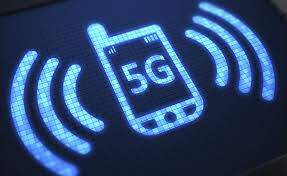 Super-fast mobile streaming could be just around the corner. Network providers around the world are already testing 5G networks, with the first 5G-ready smartphones expected to be released early next year.
Super-fast mobile streaming could be just around the corner. Network providers around the world are already testing 5G networks, with the first 5G-ready smartphones expected to be released early next year.
If everything goes to plan, the idea is that 5G will bring us broadband-equivalent download speeds over mobile networks. That would mean no more waiting ages for videos to buffer or web pages to load and make it easier for things like driverless cars to transfer vast amounts of data really quickly.
But don't think about trading in your old-fashioned 4G device just yet. It is still not clear which manufacturers and networks will upgrade to 5G first, or how long it will take. In the meantime, here is everything you need to know about the slow shift to 5G.
What is different about 5G?
5G networks will be able to handle more data, connect more devices simultaneously, and do it all at much faster speeds than is possible using existing technology. While current 4G download speeds max out at around 50 megabits per second – and in reality usually have speeds much lower than this – 5G networks have been demonstrated that run at up more than 100 times that speed.
In theory, this means that with a good 5G connection, you would be able to stream a 4K video straight to your smartphone with no lag at all. 5G networks can also handle loads of devices at one time, which makes it particularly handy for connecting together lots of Internet of Things devices in smart buildings.
Why is it so much faster than 4G?
All our existing mobile networks use radio waves, but 5G is faster because it uses parts of the electromagnetic spectrum that aren’t currently being used by other kinds of network. New developments in receiver and transmitter technology allow 5G networks to communicate using very high and very low frequency waves which, until recently, was impossible using existing technology.
When will we get 5G?
Right now, there is not a single 5G-ready smartphone on the market, but Samsung, LG, Sony, HTC and 14 other phone manufacturers have already announced that they are working with the chip manufacturer Qualcomm to bring out 5G-ready devices in 2019.
That said, a 5G-ready device isn’t much good without a network for it to connect to. Thankfully a wide spread of mobile manufacturers, including Vodafone and Verizon, are already trialling 5G networks powered by Qualcomm’s Snapdragon X50 50 Modem. Vodafone is planning to start by trialling radio towers that transmit 4G and 5G before it switches over to full-5G networks. Dual towers would have the benefit of offering the reliable range and coverage of 4G while adding the huge speed increases that come with 5G.
Whether we will actually see 5G connections in 2019 is unknown. It is likely that we will have 5G-ready devices before network providers are able to roll out widespread coverage, so it may be some time before you actually connect to a 5G network in the real world.
Why is it taking so long?
Things in the mobile network world tend to move at a very slow pace. The problem is that shifting to a new network standard requires the coordination of many different parties, from the chip and handset manufacturers who will be making the technology, to the network providers who will be making sure it runs smoothly.
Recently however the pace has started to pick up. In December 2017, the organisation that governs cellular standards, the 3GPP, signed off on a universal standard, called 5G NR. This means that after years of debate on what 5G would look like in the real world, the industry had finally come to a consensus on how it should be delivered.
Now we just need it delivered.
About VTSL
VTSL is the Best VoIP Business Phone Service Provider, as determined by the leading industry body ITSPA. VTSL specialise in hosted telephony, connectivity and unified communications solutions for businesses across the UK & Ireland. Offering bespoke integrations with CRM systems and other platforms, as well as out of the box applications for browsers and mobiles, business are able to enjoy powerful, yet easy-to-use communications technology. Find out more today by calling 020 7078 3200 or emailing info@vtsl.net.

